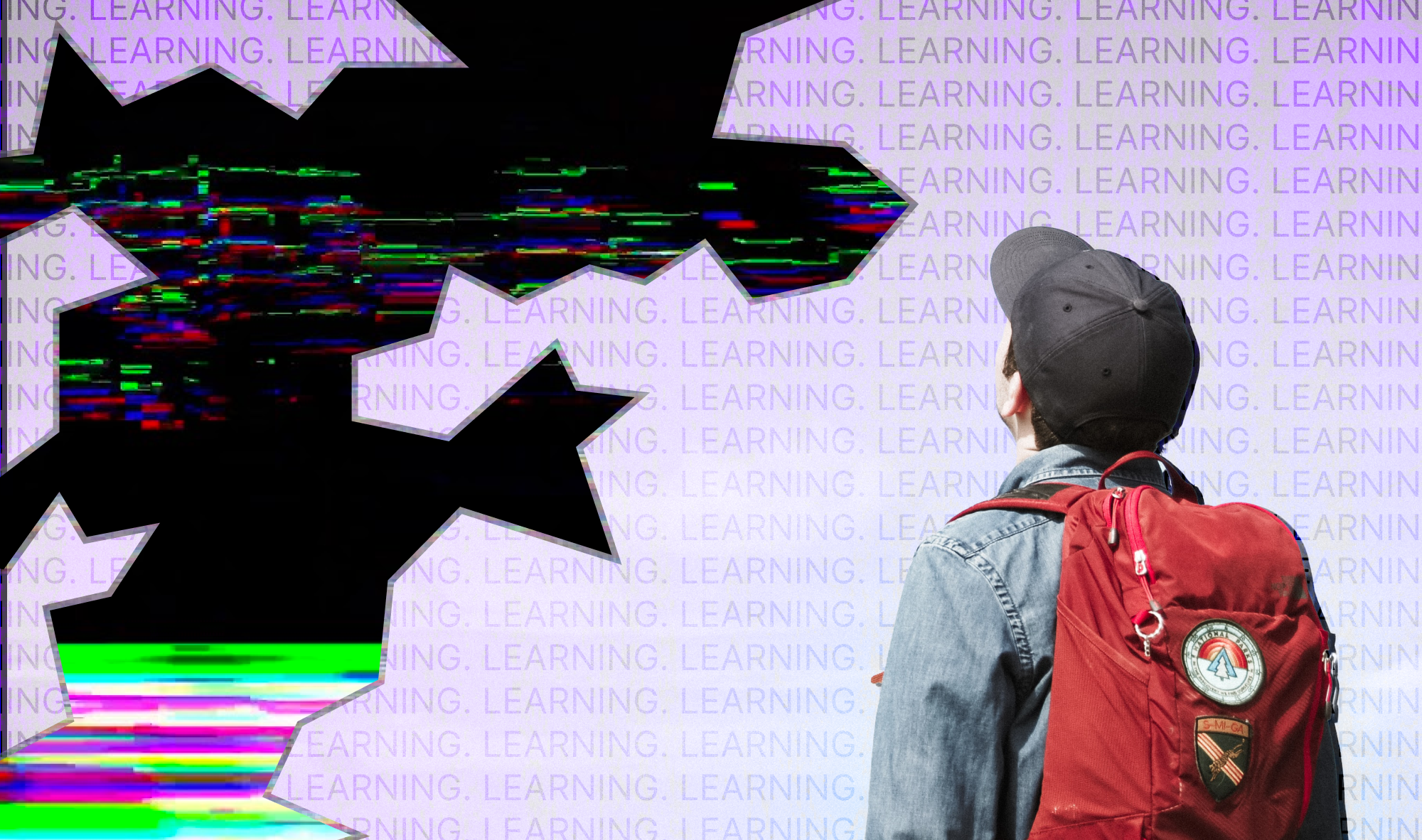I’m deeply worried about the future of learning, but I can’t put my finger on why.
For a while it was because of all the noise coming from the media and technology. It divided the population and created a sea of information that’s difficult to validate.
Later, I started to become concerned with all the cuts to education funding in Quebec, my home province in Canada. Teacher shortages, short-sighted language laws, poorly structured curriculums, etc.
Yet despite the infinite complexity in the education system, for a certain group of people the answer is to “throw more technology at it.” As a software designer, I am inherently a believer in the power of technology and the benefits it can bring to teaching and learning. However, there are limits after which it becomes either useless—or worse, proactively negative. For example, the new wave of enthusiasm around AI’s applications in education are broken up largely into these three narratives:
- Students educating themselves by creating their own custom AI tutors—typically for things like math
- Teachers getting assistance with grading traditional exams
- Administrators ensuring students don’t use AI for plagiarism or cheating
Once again, there’s very little discussion about the infrastructure and philosophy of education as a whole. Not much is being said about classroom sizes, teaching skills outside of STEM, deconstructing grading systems, reimagining learning beyond the classroom, etc.
If we were to question each of the above three points, it would go something like this:
- How do we ensure students learn social and emotional intelligence if the focus is on AI tutoring of STEM? How do we guide them to things they may never have even realized possible?
- Why are teachers so overwhelmed with grading? How can we enable teachers to build a teaching environment where grading isn’t such a major part of their effort?
- Why don’t we develop exams that tested useful skills rather than unnecessary memorizing? How do we make an educational environment where students value learning and don’t see it as a game worth cheating their way out of?
I imagine my future kids going to school and not learning what’s necessary to develop resilience for a chaotic future. I worry they won’t develop into emotionally intelligent, kind citizens when all they interface with is a soulless machine. I see young adults wasting precious time worrying about transcripts to get jobs rather than experimenting and develop real skills needed at work. I talk with mature students and seniors who feel left behind by the system and the job market, despite their wealth of experience.
We are not taking the right steps for the level of complexity and chaos present in our modern lives. We keep trying to hack the existing educational paradigm with dinky technological tools centred around testing, grading, and preparing for exams.
Despite having clarity on the issues, and dreams of ideals, I can’t seem to find a way forward with solutions. In face of the magnitude of work needed for change, I feel small and incompetent. My anxiety ends up feeling vague and untouchable, like a cloud. I’m not even sure who to talk to about this. It’s just scary to watch something like education falter. Much like its other big problem cousins (for example health care and climate change), the impact of the damage is slow and can only be felt years later.
Yet, in a recent exchange online, my attention was drawn to the potential damage that messages like the above could be causing to students. What is the impact on student’s engagement and well-being when they keep hearing that their school system is bad?
It felt like a lifeboat in a dark storm. Though completely ineffective at stopping the waves, I could at least board it and consider that students need to feel like change is possible. A true education isn’t just about gathering facts and developing an intellect. In its ideal form it can help liberate people from systems of oppression, create engaged citizens, and enable people to enact change and take control of their future.
How we learn is changing, and I should be worried. But this worry needs to take another shape. Like the lifeboat provided to me by that simple question, I should start thinking of the lifeboats I can send out myself. The complexity of modern society means that destroying the storm is not always possible. Instead, focusing on supporting even a small group of people can help give meaning to our efforts, and hopefully create larger changes in the future.
